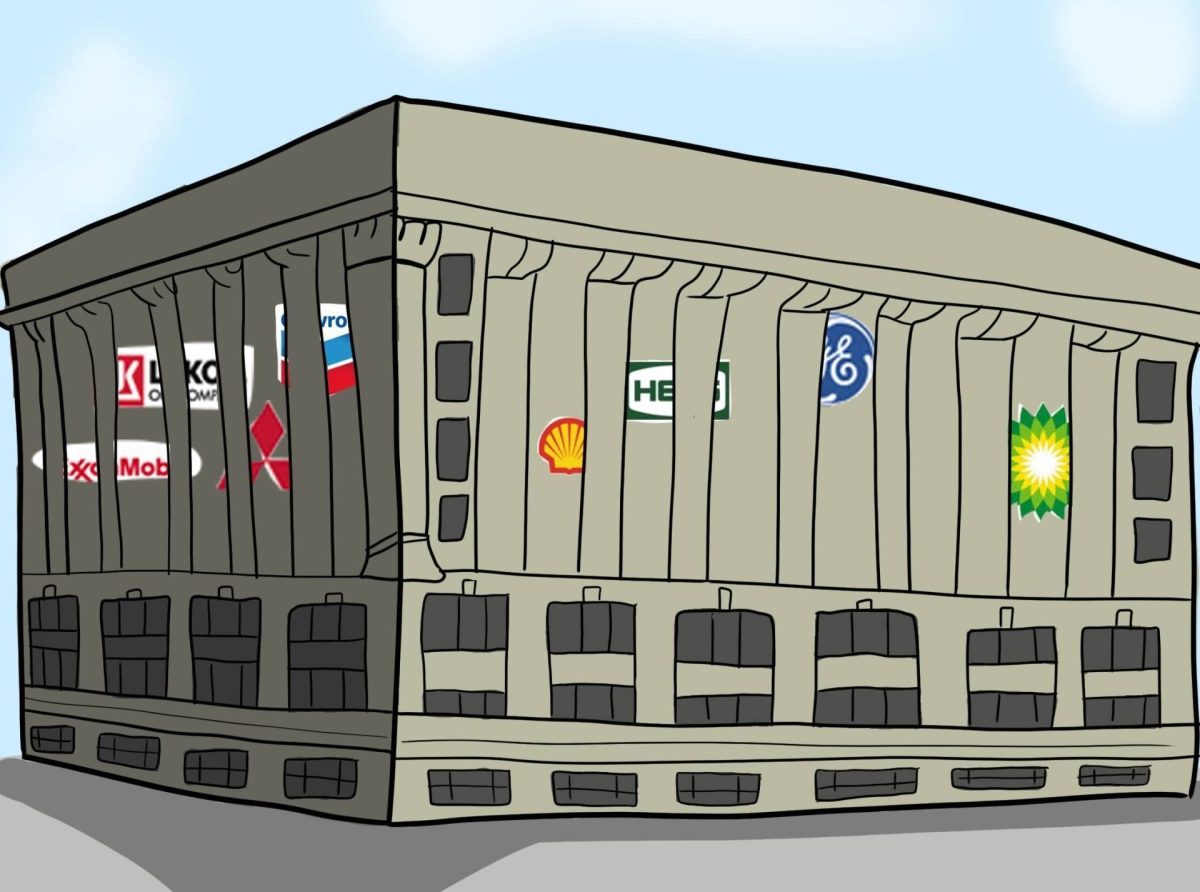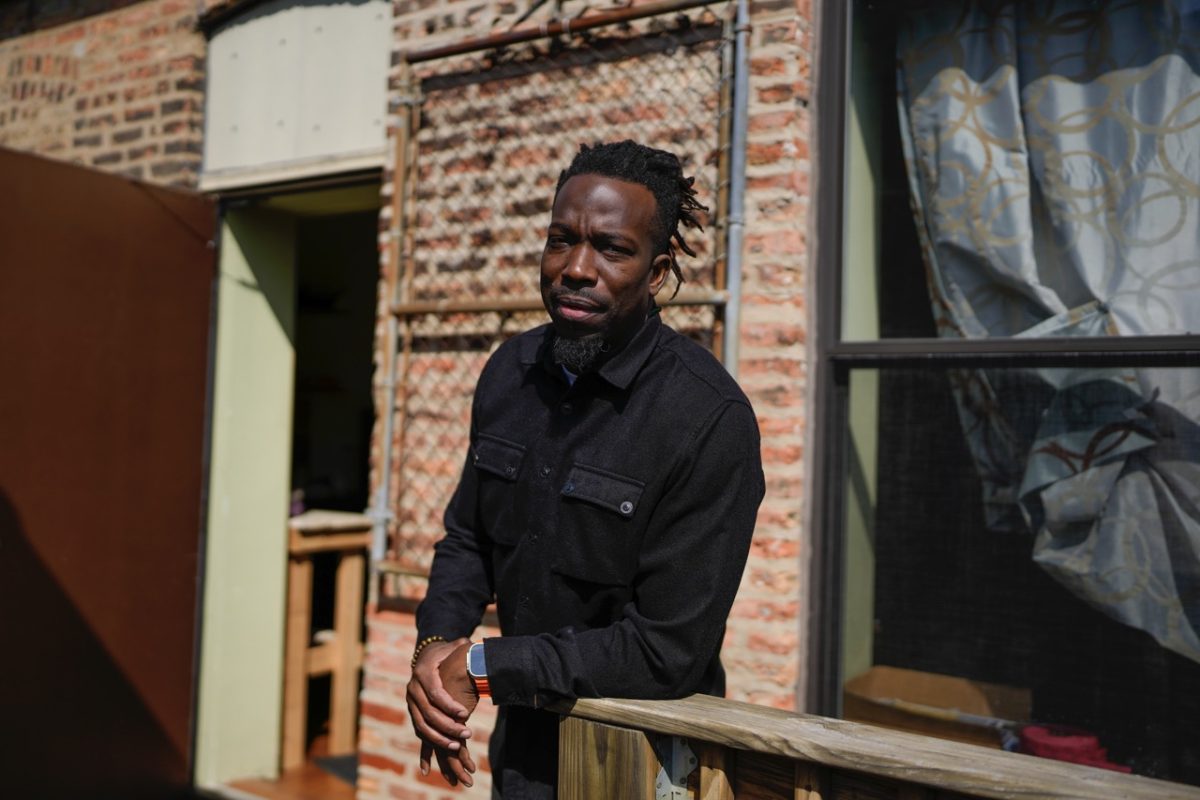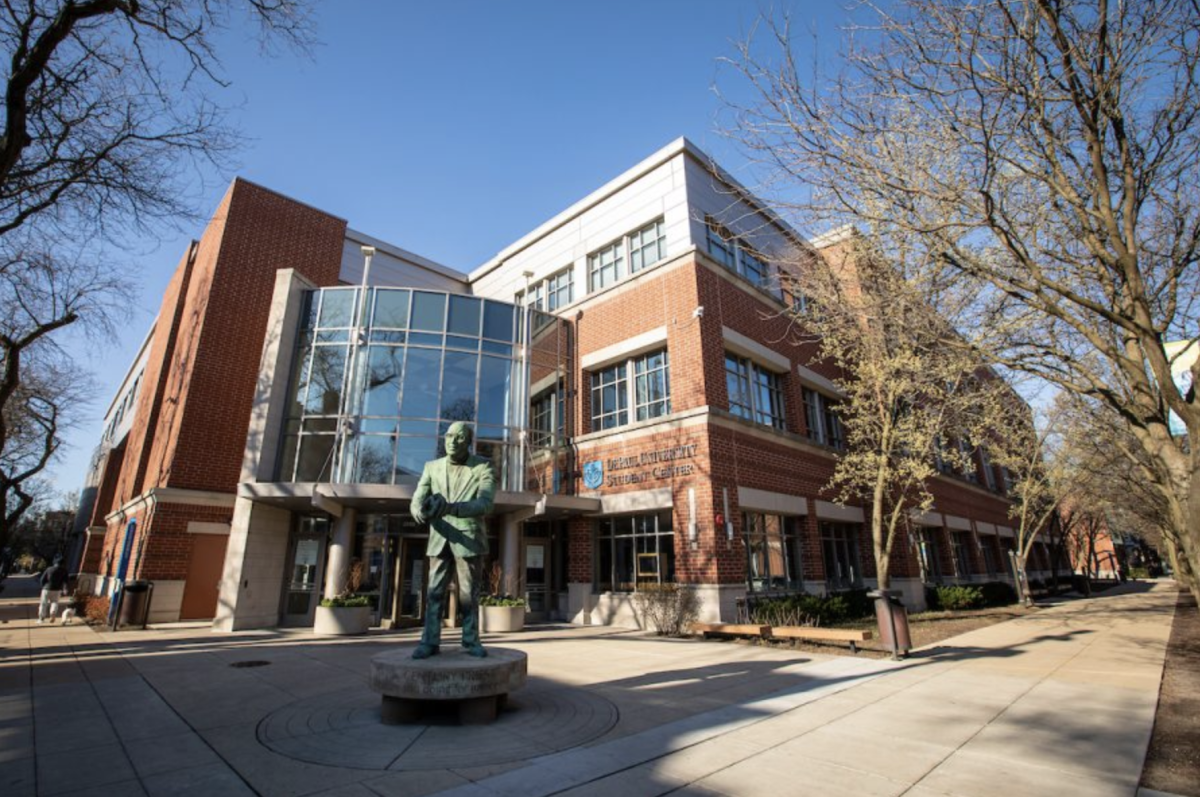The text under the statue of Fr. Jack Egan in front of the Lincoln Park Student Center reads “What have you done for justice?” A new student organization is seeking to answer that call with an ambitious goal of breaking the world record of largest food drive in a single day.
The group, called Feed Chicago, or more informally as Food for Freedom, has made it their mission to donate more than 560,000 pounds of non-perishable food items to nearly one million Chicagoans in need through The Greater Chicago Food Depository.
Founded in September of 2014 by sophomore marketing major Danny Loomans, the club is taking a modern approach to marketing their brand. They have formed numerous satellite groups at other schools to help recruit volunteers and get their name out, and the group hopes to break the record in May 2016.
“I think that the satellites serve a very unique purpose in that it’s basically taking and transplanting our brand and our image and our mission in a much broader range,” Loomans said. “So while we make administrative decisions at DePaul in terms of our support services, the other schools are locations that are actually making the things happen for us.”
This will be Loomans’ second attempt at the record. Loomans’ first attempt came back in his hometown of Fond du Lac, Wisconsin. when he was 15. After a year’s worth of planning, Loomans had not only formed an entire student committee, but the event took place with more than 400 volunteers. Together, they raised over 130,311 pounds of food that went to five counties and reached thousands of people.
The current record is 559,885 lbs of food collected in 18 hours by the North Carolina School of Science and Mathematics in Durham, NC.
With the experience under his belt, Loomans is going to use the knowledge he gained from the previous attempt to benefit him this time.
“Having done this once before, I know where there’s some pressure points. So I think that there’s a few things that are on our side for this,” Loomans said. “First of all, the fact that we’re marketing it differently than what other organizations of similar causes seem to market their stuff I think is a very unique thing. That in itself attracts a lot of the optimistic emotional response.”
With that experience, Danny also learned how to market the food drive differently.
“So from a marketing standpoint we sit around the table and we discuss different target markets and how they can contribute to Food for Freedom, to our event, and to our cause, so we are breaking down all these different markets,” Loomans said. “We try to understand what we can do that’s going to attract this particular kind of market. As opposed to trying mass marketing which is what a lot of organizations try to do.”
The initial plan for this drive is not the typical type of food drive we’ve seen before. Event Operations Teams Leader David McManus has planned the drive to accommodate a large volume of people. Cars will pull in, give the food to an attendant, who will then give it to the team to be sorted.
“From a logistical standpoint, this event is going to be beyond anything that anyone has ever seen before. When we think of food drives we think of a very different type of thing than what we’ll be executing next spring and so it’s basically going to come down to we’re processing a massive amount of food,” says Loomans. “We have to do it in a very short amount of time. And we don’t have an expert before us to tell us how many people or how many pounds we should be expecting. So everything is based off of educated assumptions. Which makes the logistics team’s job a little bit more extreme.”
Loomans took the organization with him as he moved to Chicago when he came to DePaul. Loomans said that a lot of his motivation comes from his team here at the university.
“The biggest reason why I’m involved and why every single morning I think I’m able to wake up and still want to keep doing more tasks and keep working with different people is because the enthusiasm from the people here,” Loomans said. “Their ability to see something that is so ethereal and not necessarily tangible yet. To be able to see so many people who are from so many different lifestyles and backgrounds and have so many different dreams and things like that. Being able to see them and watch them and being able to support them as they grow with one another and as we grow together as a team all united for that higher purpose of enriching people’s’ lives. I think that’s unbelievable.”
Outreach team leader Helen Kinskey is excited at the possibility of a world record.
“I joined Food For Freedom just because it’s so exciting,” Kinskey said. “I mean how can you hear that a world record food drive is going to happen and you have the opportunity to get involved, and you don’t get involved? It’s just really a cool thing that we wanna fill the depositories. It’s potentially amazing that we can make this happen.”
The team has planned the drive specifically during a time of the year where food pantries will be running low on food.
“It’s important that we do it at a time where food banks generally have less food to work with. So about right now in November- December the food pantries get really well stocked up because of the holidays and that usually lasts until maybe February or early March,” According to Loomans. “Then the opportunity there well we have our big food drive in April or May, what we’re gonna be able to do is bring a lot of food in We can help stock those pantires back up and make that food last for a portion of the summer which is generally a time where more food insecure individuals are seeking food.”
Food Insecurity, as defined by the United States Department of Agriculture, goes as follows, “Household level economic and social condition of limited access to food.” Across the globe, food insecurity affects around one in every six people. Around 16 million children will go without food today, as well as 4 million people over 60 years old and an even larger number of college students.














